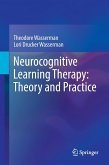This timely practical reference addresses the lack of Spanish-language resources for mental health professionals to use with their Latino clients. Geared toward both English- and Spanish-speaking practitioners in a variety of settings, this volume is designed to minimize misunderstandings between the clinician and client, and with that the possibility of inaccurate diagnosis and/or ineffective treatment. Coverage for each topic features a discussion of cultural considerations, guidelines for evidence-based best practices, a review of available findings, a treatment plan, plus clinical tools and client handouts, homework sheets, worksheets, and other materials. Chapters span a wide range of disorders and problems over the life-course, and include reproducible resources for:
Assessing for race-based trauma.
Using behavioral activation and cognitive interventions to treat depression among Latinos.
Treating aggression, substance use, abuse, and dependence among Latino Adults.
Treating behavioral problems among Latino adolescents.
Treating anxiety among Latino children.
Working with Latino couples.
Restoring legal competency with Latinos.
The Toolkit for Counseling Spanish-Speaking Clients fills a glaring need in behavioral service delivery, offering health psychologists, social workers, clinical psychologists, neuropsychologists, and other helping professionals culturally-relevant support for working with this under served population. The materials included here are an important step toward dismantling barriers to mental health care.
Assessing for race-based trauma.
Using behavioral activation and cognitive interventions to treat depression among Latinos.
Treating aggression, substance use, abuse, and dependence among Latino Adults.
Treating behavioral problems among Latino adolescents.
Treating anxiety among Latino children.
Working with Latino couples.
Restoring legal competency with Latinos.
The Toolkit for Counseling Spanish-Speaking Clients fills a glaring need in behavioral service delivery, offering health psychologists, social workers, clinical psychologists, neuropsychologists, and other helping professionals culturally-relevant support for working with this under served population. The materials included here are an important step toward dismantling barriers to mental health care.








